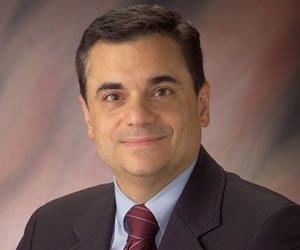In Part One of this series, we discussed post-baccalaureate pre-medical programs for career-changers (i.e. those who have not yet taken any of their medical school prerequisites). In this article, we will address a different kind of post-baccalaureate program—the Special Master’s Program, or SMP—that is designed for pre-medical students who need to show academic preparedness via additional coursework before applying to medical school.
Let’s face it—one of the most important components of your medical school application is your numerical data. Is your MCAT score competitive? Is your BCPM GPA strong? For many medical school hopefuls, falling short on one or more of these aspects is a frightening reality. And while studying for and retaking the MCAT is a relatively simple way to address weaknesses in your test results, remedying a low GPA can be trickier.
medical
How Nontraditional Students Can Best Position Themselves When Applying to Med School
A friend of mine studied film in college and subsequently found himself working as a cameraman for a documentary television program about the lives of EMTs and ER physicians. He experienced some very tense situations, and from his work decided that he wanted to do more than document how people received medical care—his desire was to participate in the action of helping others as a doctor.
Unfortunately, his film education was the furthest possible undergrad experience he could have from pre-med. He had no applicable science credits, no anatomy or physiology, and the only shadowing he had done of physicians had been with a camera in hand. In short, his path would be an arduous one, and he was soon going to turn 31.
Q&A with Physician-Author Dr. Matt McCarthy
Dr. Matt McCarthy is an assistant professor of medicine at Weill Cornell Medical College and an assistant attending physician at New York-Presbyterian Hospital. He graduated from Harvard Medical School and went on to complete his internal medicine residency at Columbia University Medical Center. Before that, Dr. McCarthy graduated from Yale University with a degree in molecular biophysics and biochemistry, and then spent a year in Minor League Baseball. He wrote about his stint in baseball in Odd Man Out: A Year on the Mound with a Minor League Misfit. The Real Doctor Will See You Shortly: A Physician’s First Year is his most recent book, and details the trials and tribulations of internship year. Dr. McCarthy has published in USA Today, Sports Illustrated, The Atlantic, Slate, Reuters, Deadspin, and Stat. I sat down with Dr. McCarthy at an Upper East Side café to pick his brain. This interview has been edited and condensed:
The Dangerous Devolution of Physicians into Technicians
Reposted from here with permission. As I sat in my institution’s white coat ceremony this past fall, … Read more
The One Letter to Rule Them All
As an undergrad, one of the reasons you devoted so much time to a research experience was to earn an epic letter of recommendation–one that speaks to your strengths, resilience, character, self-reliance, cultural competencies, ability to solve problems, and contribute to a group effort. This letter will be a comprehensive endorsement of your medical school application complete with specific examples that influenced your PI’s opinion. This one letter has the potential to outweigh all other letters from a professor whose class you attended, or from someone who oversaw a volunteer program you participated in for a semester.
A Compilation of Essential SDN Wisdom – Updated for 2022
Originally posted in 2016, this article was adapted from an SDN forums thread provides quick … Read more
The Healthcare Community and Human Trafficking
Updated October 7, 2021. The article was updated to correct minor grammatical errors and to … Read more
Study Smarter, Not Harder
Occasionally when I am browsing the online forums on SDN, I come across an unfortunate statement like this: “I studied so hard for my chemistry final and did horrible.” I’ve come across this problem for classes other than chemistry as well. A lot of people say they studied hard, but did they really? Until I really understood the other principles of studying, I didn’t realize that there is a lot more than just the act itself.
Some of the variables I’ve been able to come up with that impact studying are sometimes things we don’t analyze. A couple examples are sleep patterns, intrinsic motivation, breaks, contacting your professor, repetitive intervals, studying like it’s your job, remembering the ultimate goal and of course having fun when your not studying. I personally have to constantly remind myself to remain vigilant of everything I do and how it will impact my studying. Just remember that every test counts, so make the best possible outcome for yourself by following some of these tips.
20 Questions: Ross D. Zafonte, DO, Physical Medicine and Rehabilitation
Ross D. Zafonte, DO, is Earle P. and Ida S. Charlton professor and chairman of the Department of Physical Medicine and Rehabilitation at Harvard Medical School. He also serves as chief of physical medicine and rehabilitation at Massachusetts General Hospital, as well as vice president of medical affairs research and education at Spaulding Rehabilitation Network. Zafonte received his bachelor’s degree in psychology and biochemistry from University of Georgia (1981) and his DO from Nova Southeastern University College of Osteopathic Medicine (1985). He completed a one-year internship at Henry Ford Bi-County Hospital, followed by a residency in rehabilitation medicine at Mount Sinai School of Medicine, where he was also chief resident. Dr. Zafonte was a program fellow in research enrichment at the National Institute on Disability and Rehabilitation.
Dr. Zafonte has been on faculty at Thomas Jefferson University, University of Missouri, Wayne State University, and University of Pittsburgh. He has published extensively, authoring more than 250 peer review journal articles, abstracts and book chapters. His work can be found in Brain Imaging and Behavior, Critical Care Medicine, Journal of Burn Care & Research, Journal of the American Medical Association, PM&R, Archives of Physical Medicine & Rehabilitation, and Movement Disorders. Dr. Zafonte serves on the Board of Governors for the International Brain Injury Association, as well as the American Congress of Rehabilitation Medicine.
20 Questions: Owen Middleton, MD/ME
Dr. Owen Middleton shares his perspective on being an assistant medical examiner and advice for students
Accountable Care Organizations and Primary Care
Everyone seems to be talking about Accountable Care Organizations (ACOs). From New York to Los Angeles, the new … Read more











